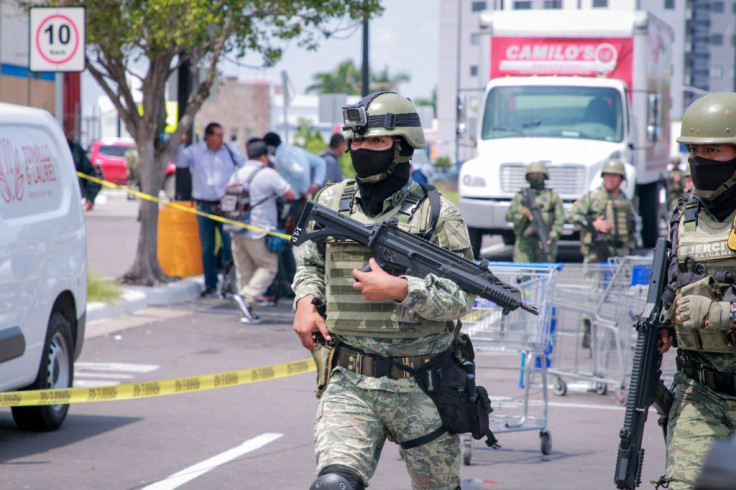
SEATTLE - For more than a month already, turf wars between two factions of the Sinaloa Cartel have resulted in the deaths of hundreds of people in Sinaloa, a state in northern Mexico. As "Los Chapitos" and "La Mayiza" continue their dispute over territory and drug smuggling routes, the state of Sinaloa has quickly become one of the most dangerous in Mexico.
During a recent press conference, Mexico's Federal Security Cabinet revealed a graphic with the total murders committed in the country between January and September of 2024. The list placed Guanajuato as the state with the highest number of murders (2,276) followed by Baja California (1,779), and Estado de Mexico (1,768). Although Sinaloa ranked 19th in this rubric, a great percentage of the state's 463 murders in 2024 have taken place since the turf wars began on Sept. 9.
Since the conflict erupted, 180 murders have been officially reported throughout the state, on top of the 19 deaths of federal agents reported due to clashes between law enforcement and criminal groups, according to Sinaloa's Attorney General's Office.
In an interview with Infobae Mexico, María Isabel Cruz Bernal, leader of the organization "Sabuesos Guerreras de Culiacán," who focus its efforts on searching for graves and missing people in Sinaloa's capital, said that even before the conflict escalated, people in Culiacán did not live in total peace.
"They used to fight, that was normal, but they used to have their clashes outside the city, near ranches, where no one was affected by them," Bernal said. "That is what we want, that they go to the mountains and fight each other there were nobody can suffer the consequences" she added.
The group said that, on top of the almost 200 deaths reported since Sept. 9, local and federal officials need to pay attention to the growing number of complaints, who now sit at 278, of people that have gone missing between August and September.
Using the numbers shared by Mexico's Federal Security Cabinet, if only data from September is taken into account, Sinaloa jumps from 19th place to 12th place in terms of numbers of murders committed in Mexico's states. Guanajuato would still lead the way, with 282 reported murders, followed by Estado de México (209), Nuevo León (151) and Baja California (147).
In an attempt to stop the massive rate of homicides throughout the nation, Mexico's new president Claudia Sheinbaum presented on Oct. 8 her plan to combat violence and crime, making emphasis on strengthning the National Guard police force as well as boosting intelligence gathering.
According to Security Minister Omar Garcia Harfuch, the National Guard is currently made up of 133,000 members and can serve areas that do not have access to reliable local policing.
Garcia Harfuch, who formerly served as Sheinbaum's police chief when she was mayor of Mexico City, added that the new strategy will focus heavily on crime prevention.
"From the Security Cabinet of the government of Mexico we are going to work with all the federal entities because we are convinced that, to achieve lasting peace in the country, we must assume that security is a shared responsibility," he said.
As soon as Sheinbaum succeeded Andrés Manuel López Obrador as Mexico's president, she announced the launch of a task force called "Fuerza de Tarea," which along with local officials will seek to bring order Sinaloa's streets.
More than just confronting criminal groups in Sinaloa, the "Fuerza de Tarea" task force will focus on protecting civilians and offering quick responses when a situation arises.
Sinaloa Gov. Rubén Rocha Moya said that the task force will be comprised of members from the Mexican Army, the National Guard and the National Center of Intelligence (CNI). The plan will be in place during the first 100 days of Sheinbaum's term in Culiacán and other municipalities in northern Mexico affected by the violence.
© 2025 Latin Times. All rights reserved. Do not reproduce without permission.





